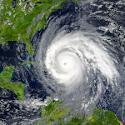Disease and injury prevention, epidemic response and mitigation, health and nutrition education and policy, and the design and implementation of community and world health programs are all functions of public health, a field that encompasses epidemiology, immunology, toxicology, neuroscience, biostatistics, health communication and promotion, social and behavioral science, and community, environmental, and occupational health. The practice of public health involves studying the causes of disease, illness, and injury in order to implement preventative measures, reduce risk, mitigate harm, and ultimately improve the lives of individuals on a mass scale. This vital work requires the coordinated efforts of governments, healthcare systems, non-profit organizations, community groups, and dedicated professionals who research public health issues, track the spread of infectious diseases, environmental pollutants, and other safety threats, and mobilize resources in order to direct public health efforts, educate the public about important health issues, and respond effectively to public health emergencies.
The threats to public health are many and varied. Industrialization and practices in manufacturing, agriculture, and other areas of business and commerce can and have created unexpected and/or unintended consequences that impact population and community health, such as toxins and pollutants, resource depletion, and climate change. Globalization has opened new vectors for emerging and existing infectious diseases, while the persistence of poverty, malnutrition, and poor sanitation continues to leave large populations vulnerable to such threats. There are also social and behavioral factors that public health practitioners work to address, such as substance abuse, vaccine skepticism, domestic violence, and other patterns of belief and behavior that can cause harm and injury across large population groups.
While the challenges in public health are numerous, advances in data and communication technologies, medical science, and other technical fields are providing epidemiologists, toxicologists, educators, and others in the public health field with better tools for fighting disease, promoting wellness, and diminishing health and safety risks across communities, countries, and continents. Digital data technologies have vastly improved the ability of public health professionals to identify and respond to health crises, while the Internet and mobile technologies have provided new avenues for health and risk communication. As scientific research continues to further our understanding of human health, public health professionals are in a better position to deploy effective solutions to public health issues and concerns.
Overview of Master of Public Health (MPH) Degree Programs
The Master of Public Health (MPH) degree, and the largely equivalent Master of Science in Public Health (MSPH) degree are relatively modern educational innovations, dating back to the first half of the 20th century, when the first schools of public health opened in the United States. Drawing on nascent advances in medicine, bacteriology, and virology, and growing concerns over sanitation, poverty, and other systemic functional and societal issues, public health emerged as a discipline that brought together aspects of medical and behavioral science, concepts of social engineering, and progressive ideas about the role of government in protecting the health and welfare of citizens. In 1935, the Social Security Act established the American Public Health Service, which funded state efforts to employ public health professionals who had formal graduate training. By the following year, Columbia University, Harvard University, Johns Hopkins University, Massachusetts Institute of Technology, and Yale University were among the handful of institutions that offered such training.
The formalization of public health as a discipline and a profession that followed the establishment of the Public Health Service in the US led to the creation of master’s degree programs that provided training and instruction in the principles and practices of public health. In the 1940s, the Association of Schools of Public Health (ASPH), now the Association of Schools & Programs of Public Health (ASPPH), began the process of standardizing a graduate curriculum for MPH and MSPH degree programs.
There are now over 60 schools of public health in the US that are accredited by the U.S. Department of Education recognized Council on Accreditation in Public Health (CEPH), and dozens more public health graduate programs that have CEPH accreditation. Persistent concerns about public health issues like pandemic viruses and the need for policy experts and researchers with training in epidemiology, environmental health, health communication, and behavioral health have made public health an increasingly common choice for graduate studies. Indeed, an analysis of annual data from the US Department of Education’s National Center for Education Statistics’ Integrated Postsecondary Education Data System (IPEDS) on the number of students graduating from graduate programs in public health since the 2010-2011 academic year shows a more than 50 percent increase in degrees conferred over the past decade, from 9,725 in 2011 to 14,772 for the 2017-2018 academic year (the most recent for which data is currently available).
Table: Master’s Level Graduates in Public Health by Year Based on Data from IPEDS
| Academic Year | 2010-11 | 2011-12 | 2012-13 | 2013-14 | 2014-15 | 2015-16 | 2016-17 | 2017-18 |
|---|---|---|---|---|---|---|---|---|
| Public Health Master’s Degrees Conferred | 9,725 | 10,649 | 11,001 | 11,853 | 12,160 | 12,897 | 13,902 | 14,772 |
Online MPH Programs
As the number of accredited colleges and universities with schools of public health has grown, and the number of students pursuing master’s degrees in the field has increased, there has been a rise in the number of MPH programs that are offered online. Online MPH programs represent a more convenient and flexible alternative to traditional, campus-based programs. They offer the same curriculum and graduate training as campus-based programs, but they do so by using distance-learning and mobile technologies that allow students to view lectures and complete assignments from anywhere with a secure Internet connection.
While online education is not right for every student, there are a number of advantages that online MPH programs afford, some of the more common of which include:
- Convenience: Online instruction allows students to earn an MPH degree without having to travel to a campus location one or more times per week for scheduled classes
- Flexibility: Many online programs utilize asynchronous online instruction, a mode of instruction that provides students with access to pre-recorded lectures and course modules that can be streamed at any time of the day and reviewed one or more times if a student chooses to do so.
- Access: Online programs give students who do not live within commuting range of a school that offers an MPH program the opportunity to pursue an MPH degree without having to relocate in order to be closer to a school that offers a program.
- Choice: Online programs provide students who would prefer not to relocate a broader selection of MPH programs to explore and give students the option of choosing a program with a curricular focus or specialization that aligns with their interests.
- Stability: For students who must relocate as part of their job or family situation, such as those in the military or military spouses, the majority of online programs allow students to change residences and continue their studies without having to stop their studies or transfer to a new program.
It is important to note that not all online programs are the same, and that online instruction may present challenges for students who are not accustomed to distance learning. Some online programs utilize synchronous instruction, a mode of instruction that incorporates real-time class meetings and/or live-streamed lectures and discussions. During these sessions, students log on to an online learning platform and interact with instructors and classmates through web and videoconferencing software. Oftentimes online master’s programs with synchronous instruction sessions will limit the number of students in each course to ensure that students and professors can have enriching and thought-provoking discussions in the online virtual classroom.
In contrast, many programs utilize asynchronous instruction, which allows students to stream lectures and complete assignments at their convenience, 24-7 (assuming they complete their work by set due dates). Programs that mainly use asynchronous instruction typically have either zero or very few sessions that students must attend in real-time. If a live session is required, students often know well in advance so they can schedule accordingly. Also, programs that use asynchronous instruction may have optional live sessions that are recorded for students who cannot attend. These sessions are to give students the option of connecting face-to-face with faculty and course peers, while still providing flexibility to students who need it. This is distinct from programs that utilize mandatory synchronous instruction, which expect/require students to attend as many live sessions as possible.
In addition, some online programs require students to attend a limited number of campus visits that may include orientation sessions, seminars, workshops, networking opportunities, and other types of instructional and enrichment programming that benefits from hands-on learning and face-to-face interaction between students and instructors. Conversely, many programs are designed to allow students to earn an MPH degree without having to attend any required campus visits. As the above information suggests, there are a wide variety of online MPH programs with learning formats and expectations to suit a diversity of student learning preferences and schedules.
Students who feel they would prefer a more structured online learning experience that includes regularly scheduled class meetings should consider programs that utilize synchronous instruction. In contrast, a program that offers all of its coursework via asynchronous instruction may be preferable for a student who anticipates scheduling conflicts, provided he or she possesses the focus and self-motivation to complete assignments on time in the absence of regularly scheduled class meetings. Similarly, students who want the opportunity to meet with instructors and classmates and who are able to travel to a school’s campus should look for online MPH programs that incorporate campus visits. For students who would prefer no campus-based requirements, there are online MPH programs that do not incorporate campus visits.
OnlineMPHPrograms.com uses the number of campus visit required to categorize programs as either campus-based, hybrid, or online. Programs that do not require any campus visits, as well as programs that require three or fewer campus visits per year, are classified as online MPH programs. Programs that provide online instruction but which require more than three campus visits per year are classified as blended or hybrid MPH programs and are not included on this site at this time.
MPH Program Specializations
The core curriculum for MPH programs, whether they are offered online, on-campus, or in a hybrid format, is standardized to the extent that the CEPH requires programs it accredits to provide training and instruction in key areas of public health theory and practice. These include:
- Evidence-based epidemiological methods for collecting and analyzing public health data
- Comparative analysis of healthcare systems
- Health promotion policy design and management
- Advocacy for political, social, and economic policies that impact public health
- Leadership and communication skills for public health professionals
The CEPH also requires schools that it accredits to demonstrate that MPH program graduates have foundational competencies in areas that include but are not limited to:
- The history and philosophy of public health
- Quantitative and qualitative methods for assessing population health
- Causes and trends in morbidity and mortality in the US
- The environmental, biological, genetic, behavioral, and psychological factors in public health.
In addition to the general MPH program curriculum described above, many programs offer one or more specializations or concentrations that allow students to focus on and gain expertise in a particular area of public health practice. These areas of concentration include:
MPH Program Specializations

Behavioral and Social Science
The use of behavioral science, sociology, and psychology to examine and impact public health.

Biostatistics and Informatics
The application of mathematical and statistical methods to identifying, tracking, and mitigating disease and monitoring public health.

Community Health Promotion, Education, and Communication
A population-based approach to educating people about preventative health and wellness measures, as well as complex yet critical health concepts.

Disaster Management
The application of public health principles to prevent, detect, and address environmental, natural, industrial, and technological crises that effect public health

Environmental Health
The study of environmental factors that impact population health and approaches to identifying, managing, and reducing environmental health risks.

Epidemiology and Infectious Disease
A scientific approach to studying disease causation and distribution among populations, with the aim of devising prevention and mitigation strategies for existing and emerging viral and bacterial diseases.

Global Health
The role of public health professionals in planning, implementing, and evaluating programs that address global health issues.

Health Policy and Management
Using the tools of management and organizational communication to coordinate public health efforts and create strategic plans for public health initiatives and organizations.

Maternal and Child Health
Focusing public health efforts on improving the environmental, social, and medical health conditions surrounding pregnancy, birth, and motherhood.

Health Equity / Minority Health and Health Disparities
Crafting evidence-based policy and initiatives to address the public health needs of minority groups and other undeserved populations.

Nutrition
Using the science of diet and nutrition to inform preventative health measures and improve population health outcomes.

Occupational Health
Studying workplace conditions as a means of addressing issues in public health and promoting wellness.
Accreditation of MPH Programs
There are two types of accreditation that are important considerations for students who are interested in pursuing a master’s degree in public health: institutional accreditation, and programmatic accreditation.
Institutional accreditation is overseen by six regional bodies sanctioned by the US Department of Education and is designed to provide assurances that a college or university meets clear standards for institutional integrity and viability. This type of accreditation does not focus on specific academic programs, but instead assesses the overall quality of an academic institution. Programmatic accreditation is offered by the following regional bodies:
- The Higher Learning Commission (HLC)
- The Middle State Commission on Higher Education (MSCHE)
- The New England Commission of Higher Education (NECHE)
- The Northwest Commission on Colleges and Universities (NWCCU)
- The Southern Association of Colleges and Schools (SACS)
- The Western Association of Schools and Colleges (WASC)
Most MPH programs, including online MPH programs, are offered by colleges and universities that are accredited by one of the six commissions and associations listed above. However, The Council of Higher Education Accreditation (CHEA) recognizes a number of other organizations that can accredit schools, including the Distance Education Accrediting Commission (DEAC) and the Accrediting Council for Independent Colleges & Schools (ACICS). For a complete list of accreditation commissions, associations, and organizations with CHEA recognition, visit www.chea.org. Attending a college or university with institutional accreditation is absolutely crucial as degrees and/or credits earned from a school that is not accredited may not be recognized by other institutions, employers, professional associations, and licensing bodies (where applicable).
In addition to institutional accreditation, schools and programs in public health can apply for programmatic accreditation from the CEPH, an independent accrediting agency that is recognized by CHEA and is a member of the Association of Specialized and Professional Accreditors (ASPA). CEPH accreditation is important because it serves as an assurance that schools of public health and/or public health academic programs, including online MPH programs, offer a curriculum that provides effective training and instruction in the accepted principles and practices of public health. However, accreditation is voluntary, and schools that do not seek accreditation will often use the CEPH’s guidelines and standards when they create their own curricula. Therefore, unlike some fields where attending a program with programmatic accreditation is crucial (for example, Master of Social Work programs need to be accredited by the CSWE if students plan to seek a state license to practice social work), attending a CEPH accredited MPH program may be beneficial but not required, depending on a student’s intended career path. For more information, please refer to our FAQ on CEPH accreditation.
Be Informed
Transparency, accuracy, and relevance underpin all of the content we create on this site. We are dedicated to research and building quality resources for our readership. For more information about the content we have on this site, our sources of data, our program classifications, and other important details, please refer to our Sources and Disclaimers page.